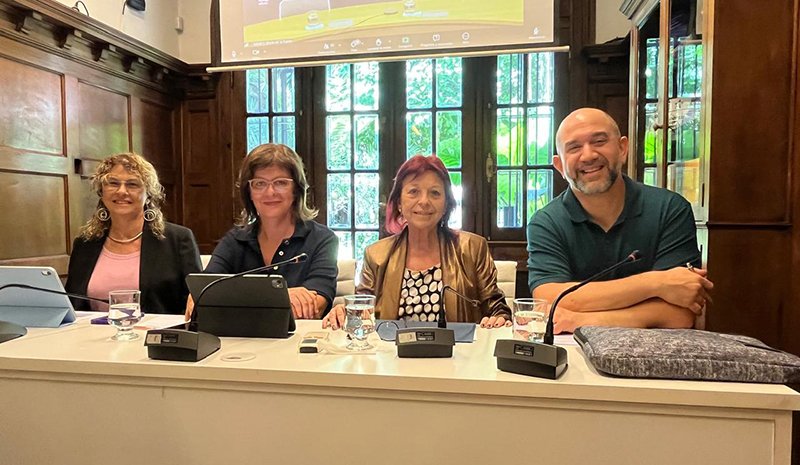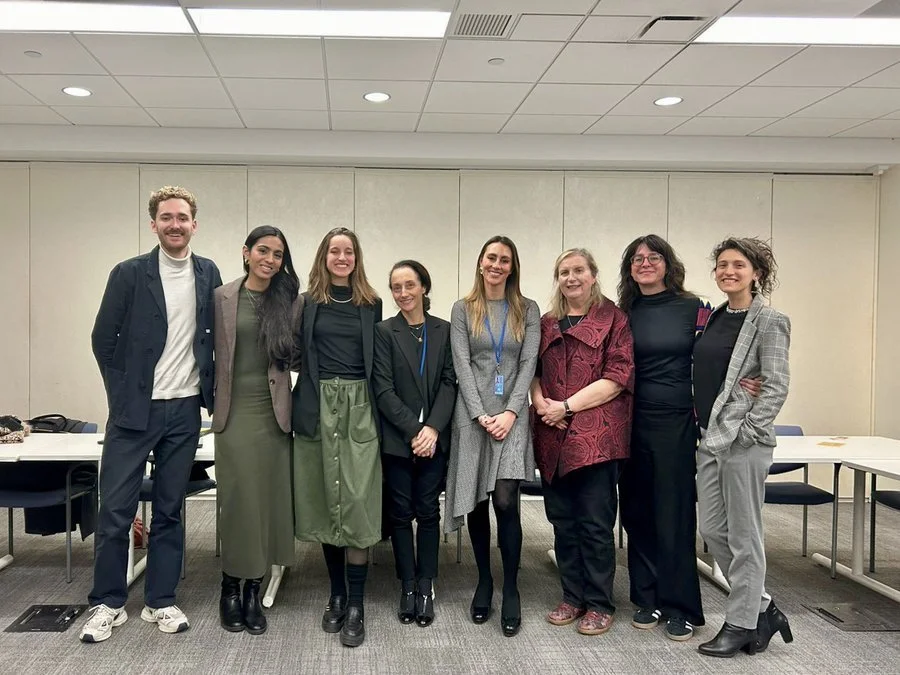NEWSLETTER: Marching Forward and Pushing Back
Dear friend of feminist foreign policy,
What a year. Although we wind down 2024 far from our collective vision of peace, equality and planetary integrity, we at the Collaborative are nonetheless closing out the year as we began it: with gratitude.
Gratitude for the opportunity to work with and learn from you, a gracious and global network of hundreds of friends and partners working tirelessly toward these ideals, even when it’s slow going. Gratitude for the hard work you do, and for your belief in building a feminist future together. And gratitude for the opportunity to engage in deep reflection as we consider the way forward in 2025.
This work isn’t easy. From expanding violent conflicts to sweeping electoral victories of the hard right, ours often feels like a losing battle. But as our Senior Fellow, Marita Perceval—best known as a political leader and architect of Argentina’s feminist foreign policy, but who I regard as a poet, philosopher and personal inspiration—reminds us: for nearly 50 years, the Madres de la Plaza de Mayo have marched to assert the memory of their disappeared children, under the mantra that the only battles you lose are the ones you walk away from.
Feminist movements throughout history have known that progress is not linear, that we must continue to march forward even as we are pushed backward. But we fight to the finish.
Indeed, progress has not been linear, and it shouldn’t be this slow. But it is happening. This March, we were grateful to support the Government of Colombia as it launched the world’s first pacifist feminist foreign policy at the 68th session of the U.N. Commission on the Status of Women. In July, the Government of Mexico became the first host of the annual ministerial summit on feminist foreign policy in the Global South, penning a political declaration in which 20 countries committed to advancing peace and climate justice in their foreign policies. In September, together with the Government of Spain on behalf of the Feminist Foreign Policy Plus Group at the United Nations, they deepened that commitment with an explicit agenda for feminist action in foreign policy dialogues: at the High-Level Political Forum on Sustainable Development, 4th International Conference on Financing for Development (FfD4), World Summit on Social Development, and UN Climate Change Conferences.
We will be there every step of the way, alongside our civil society partners who have been pushing–from regional dialogues in Asia and the Pacific, Latin America and the Caribbean, Africa and the Middle East, to preparatory meetings for next year’s FfD4—to assert our belief in a foreign policy in service of human rights, equality and justice: a more feminist foreign policy.
We’re looking at 2025 as a test case: can feminist foreign policy be an answer to the growing authoritarian and strongman leadership sweeping the globe? Eight years ago, there were only a couple of countries that had adopted this approach. Nonetheless, it was feminist foreign policy countries that led the charge in developing She Decides, an effort to fill the funding gap for sexual and reproductive rights created by the dramatic expansion of the Global Gag Rule.
In the intervening years, the FFP cohort has expanded and diversified, hailing from all UN regions. Can this new political geometry provide a diplomatic counterweight, a champions-only space for the defense of people, peace and planet?
We believe it can, although we know it will be a challenge. This is still a small group, itself not immune to the legacies of colonialism, uneven power dynamics and the forces of change ousting incumbents and pulling the political center of gravity rightward. But nonetheless, we still believe in its potential to deliver a more promising future, challenge our current ways of working and make meaningful policy gains. Feminist foreign policy is not made to sit on a shelf. It’s a frontline framework; this is the moment to use it.
We invite you to join us as we plot the way forward, working with our partners to determine how we navigate this new geopolitical reality. We will spend much of next year in strategic assessment, contemplating what lessons we might take from this moment and how they should inform our approach. We invite you to reach out with any questions or suggestions, any lessons you are learning or inspiration you are taking. And we wish you deep rest and peace as we close out 2024 and prepare ourselves for the work that lies ahead.
In solidarity,
Lyric Thompson
Founder and CEO of the Feminist Foreign Policy Collaborative




